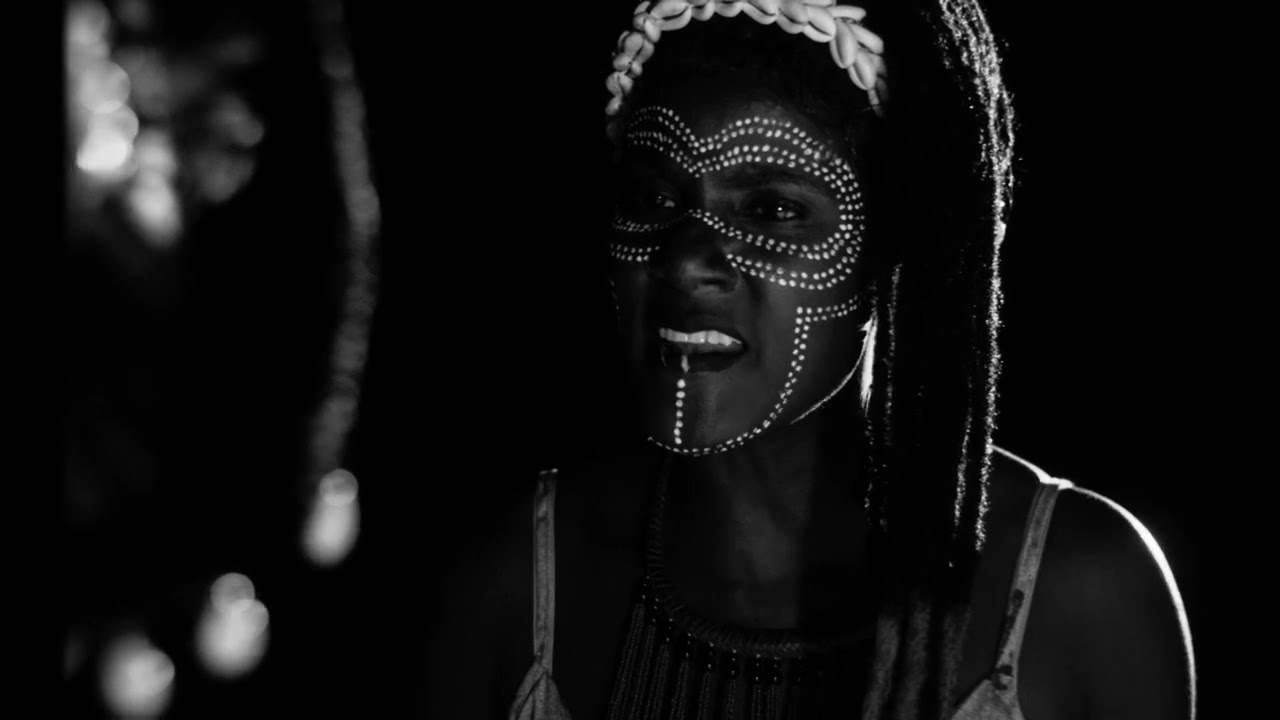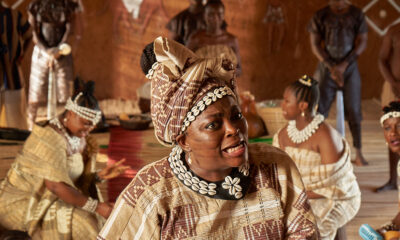Features
Oris Aigbokhaevbolo: Nollywood Gets its First Dance at Sundance Via “Mami Wata”

The first time I was at a film festival outside Nigeria was back in 2014. The venue was Durban, South Africa. A filmmaker asked me if such a thing as a critic existed in Nigeria, given what he knew of Nollywood. The filmmaker was South African and so there was probably that rivalry thing going on. But there was also some truth to his question. Nollywood wasn’t exactly thinking about playing in the international scene on the level of festivals.
Over the past few years, that has changed. Netflix, Amazon, and Showmax are pouring money into the industry and demanding a certain level of excellence Nollywood has otherwise resisted. Folks like me were shouting in the wilderness for years and the response was a blithe “my film made money.” The implication was that straining for more, artistically, was useless. The quality question went unanswered and frequently unheard. It was a bit of frustration that led me to write a piece on the lack of ambition from Nollywood.
And so it was particularly memorable the day I came across a small film titled O-Town at the African International Film Festival. At this point, Kunle Afolayan had made Figurine and Kenneth Gyang made Confusion Na Wa, the two films that mark a watershed moment in New Nollywood’s history. O-Town had emerged as an unlikely sequel to those films and its clear ultra-indie status placed it directly under Confusion Na Wa. Here at last was a film that showed very clearly that an artist was at the helm. But many of the younger directors didn’t quite think highly of CJ Obasi or his film. But I was convinced, so I did what any self-respecting critic would do: I wrote about the film, praising the man’s vision.
Even then, it was obvious that whatever flaws his film had, Obasi was thinking beyond his national audience. Indeed, one of the issues Nollywood players from the time had with his film was its characters speaking with a western accent. It was a fair commentary, but I felt that that was criticism that could dwell in the same space as an appreciation for Obasi’s talent.
Towards the end of last year, that talent received quite the validation when Obasi’s name appeared in the list of Sundance films. Anyone would be forgiven for thinking that homegrown filmmakers can’t really cut it in major festivals outside the country and continent without appearing via a sidebar section. It was hardly cynicism; it was being practical. Not a lot of Nollywood figures knew about the festival scene beyond a certain level. I recall an argument years ago on Twitter where a screenwriter/producer was arguing about how festivals are ranked because his film had gotten into a special programme at TIFF which, of course, made TIFF the biggest film festival in his eyes.
In any case, on two occasions in recent years, Nigerian names have appeared in the list of award winners at Sundance. Both times, neither player could really claim an intimate kinship with Nollywood, heavily bred as they were in the west. I am referring to Chinonye Chukwu and Akinola Davies. That’s not the case with Obasi who, since O-Town has received credits in major Nollywood productions, such as Lionheart and Living in Bondage: Breaking Free. As with many young and ambitious filmmakers, he probably has a complex relationship with the term Nollywood— but I’m certain the term has no problem with him. His film at Sundance, Mami Wata, is distributed by Film One, one of Nollywood’s big players, which comes as a surprise, given Film One’s generally mainstream Nollywood tastes. On this evidence, Film One is expanding into a global player, doing what firms of its size and apparent ambition do elsewhere by showcasing a diversity of projects. In short, Obasi and his project have Nigerian DNA through and through.
The question that would follow is: what happens next? That would depend on the reception of the film in Utah. But it helps to remember that Sundance gave such filmmakers as Steven Soderbergh and Quentin Tarantino a platform to launch wonderful careers. Maybe, just maybe, it’s one Nigerian filmmaker’s turn.
Whatever the case, in a day or two, I shall see the film for myself courtesy of a Sundance invitation. I attended the festival three years ago in person, but that wasn’t enough for the US Embassy this time. So I’ll have to make do with seeing Mami Wata using my online Sundance pass.
This saves me money but it robs me of the pleasure of answering any pesky questions about Nollywood and/or Nigerian cinema with a bit of pride in Utah. Which is unfortunate because I have imagined myself saying, “Of course, there’s a Nigerian filmmaker showing in the World Dramatic Competition. His name is CJ Obasi. Maybe I can tell you about the day I first saw his work?”






















